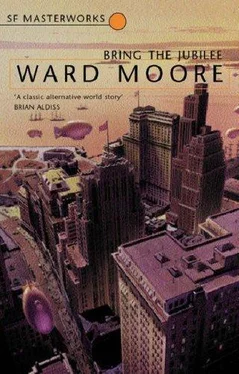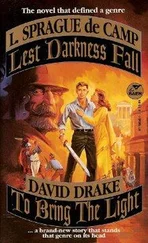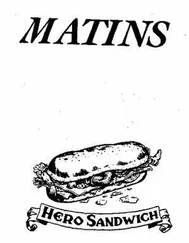He seemed to be enjoying himself as he drank his beer. “You're a gloomy gus, Hodge. 'Tain't 's bad 's that. Indenting's pretty strictly regulated. That's the idea anyway. I ain't saying the big companies don't get away with a lot. You can't be made to work over sixty hours a week. Ten hours a day. With twelve hundred dollars you could get all the education you want in your spare time and then turn your learning to account by making enough to buy yourself free.”
I tried to think about it dispassionately, though goodness knows I'd been over the ground often enough. It was true the amount, a not improbable one, would see me through college. But Pondible's notion of turning my “learning to account” I knew to be a fantasy. Perhaps in the Confederate States or the German Union knowledge was rewarded with wealth, or at least a comfortable living, but any study I pursued—I knew my own “impracticality” well enough by now—was bound to yield few material benefits in the backward United States, which existed as a nation at all only on the sufferance and unresolved rivalries of the great powers. I'd be lucky to struggle through school and eke out some kind of living as a freeman; I could hardly hope to earn enough to buy back an indenture on what was left of my time after subtracting sixty hours a week.
“It wouldn't work,” I said despondently.
Pondible nodded, as though this were the conclusion he had expected me to come to. “Well then,” he said, “there's the gangs.”
I looked my horror.
He laughed. “Forget your country rearing. What's right? What the strongest country or the strongest man says it is. The government says gangs are wrong, but the government ain't strong enough to stop them. And maybe they don't do as much killing as people think. Only when somebody works against them—just like the government. Sure they have to be paid off, but it's just like taxes. If you leave the parsons' sermons out of it, there's no difference joining the gangs than the army—if we had one—or the Confederate Legion—”
“They tried to recruit me yesterday. Are they always so…”
“Bold?” For the first time Pondible looked angry, and I thought the scar on his forehead turned whiter. “Yes, damn them. The Legion must be half United States citizens. When they have to put down a disturbance or run some little cockroach country they send off the Confederate Legion—made up of men who ought to be the backbone of an army of our own.”
“But the police—don't they ever try to stop them?”
“What'd I tell you about right being what the strongest country says it is? Sure we got laws against recruiting into a foreign army. So we squawk. And what have we got to back it up with? So the Confederate Legion goes right on recruiting the men who have to beg for a square meal in their own country. Well, the government is pretty near as bad off when it comes to the gangs. Best it can do is pick off some of the little ones and forget about the big ones. Most of the gangsters never even get shot at. They all live high, high as anybody in the twenty-six states, and every so often there's a dividend—more than a workman makes in a lifetime.”
I began to be sure my benefactor was a gangster. And yet… if this were so why had he wheedled credit from the barkeep? Was it simply an elaborate blind? It seemed hardly worth it.
“A dividend,” I said, “or a rope.”
“Most gangsters die of old age. Or competition. Ain't one been hung I can think of the last five-six years. But I see you've no stomach for it. Tell me, Hodge—you Whig or Populist?”
The sudden change of subject bewildered me. “Why... Populist, I guess.”
“Why?”
“Oh… I don't know…” I thought of some of the discussions that used to go on among the men around the smithy. “The Whigs' 'Property, Protection, Permanent Population'—what does it mean to me?”
“Tell you, boy, means this: Property for the Confederates who own factories here and don't want to pay taxes. Protection for foreign capital to come in and buy or hire. Permanent population—cheap native labor. Build up a prosperous employing class.”
“Yes, I know. I can't see how it helps. I've heard Whigs at home say the money's bound to seep down from above, but it seems awfully roundabout. And not very efficient.”
He reached over and clapped me lightly on the shoulder. “That's my boy,” he said. “They can't fool you.”
I wasn't entirely pleased by his commendation. “And protection means paying more for things than they're worth.”
” 'Tain't only that, Hodge, it's a damn lie as well. Whigs never even tried protection when they was in. Didn't dast. Knew the other countries wouldn't let them.”
“As for 'permanent population' ... well, those who can't make a living are going to go on emigrating to prosperous countries. Permanent population means dwindling population if it means anything.”
“Ah,” he said. “You got a head on your shoulders, Hodge. You're all right; books won't hurt you. But what about emigrating? Yourself, I mean?”
I shook my head.
He nodded, chewing on a soggy corner of his mustache. “Don't want to leave the old ship, huh?”
I don't suppose I would have put it exactly that way, or even fully formulated the thought. I was willing to exchange the familiar for the unknown—up to a certain point. The thought of giving up the country in which I'd been born was repugnant. Call it loyalty, or a sense of having ties with the past, or just stubbornness. “Something like that,” I said.
“Well now, let's see what we've got.” He stuck up a dirty and slightly tremulous hand, turning down a finger as he stated each point. “One, patriot; two, Populist; three, don't like indenting; four, prosperity's got to come from the poor upward, not the rich down.” He hesitated, holding his thumb. “You heard of the Grand Army?”
“Who hasn't? Not much difference between them and the regular gangs.”
“Now what makes you say that?”
“Why… everybody knows it.”
“Do, huh? Maybe they know it all wrong. Look here now—and remember about the Confederate Legion riding over the laws of the United States—what would you think ought to be done about foreigners from the strong countries who come here and walk all over us? Or the Whigs who do their dirty work for them?”
“I don't know,” I said. “Not murder, certainly.”
“Murder,” he repeated. “That's a word, Hodge. Means what you want it to mean. Wasn't murder back during the war when Union soldiers was trying to keep the country from being split up. 'Tain't murder today when somebody's hung for rape or counterfeiting. Anyhow the Grand Army don't go in for murder.”
I said nothing.
“Oh, accidents happen; wouldn't deny it. Maybe they get a little rougher than they intend with Whig traitors or Confederate agents, but you can't make bacon out of a live hog. Point is the Grand Army's the only thing in the country that even tries to restore it to what it once was. What was fought for in the war.”
I don't know whether it was the thought of Grandfather Backmaker or the unassuaged guilt for the miserable figure I had cut only three days back that made me ask, “And do they want to give the Negroes equality?”
He drew back sharply, shock showing clearly on his face. “Touch of the tar brush in you, boy? By—” He bent forward, looking at me searchingly. “No, I can see you ain't. Just some notions you'll outgrow. You just don't understand. We might have won that war if it hadn't been for the Abolitionists.”
Would we? I'd heard it said often enough; it would have been presumptuous to doubt it.
“The darkies are better off among their own,” he said; “they never should have been here in the first place; black and white can't mix. Leave ideas like that alone, Hodge; there's plenty and enough to be done. Chase the foreigners out, teach their flunkies a lesson, build the country up again.”
Читать дальше












